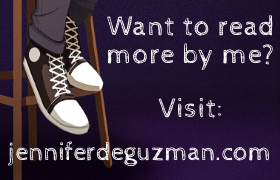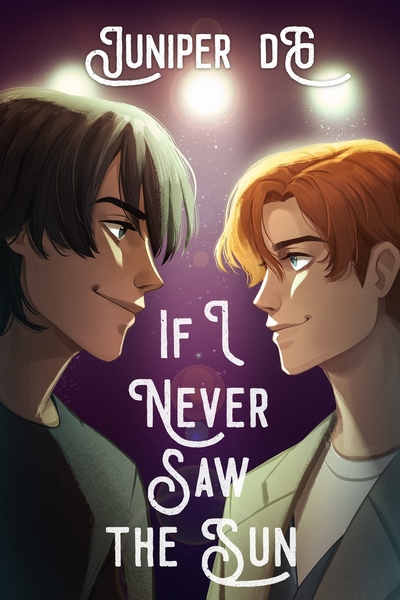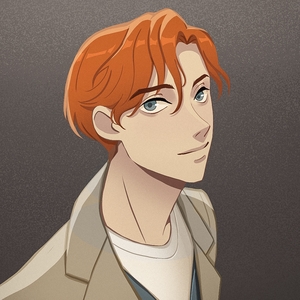They managed to sneak out of the house without Bridget making up her mind to speak to Bard first. Cassandra led the expedition, giving Victory driving directions but refusing to tell them where they were going until they were at the stone and wrought iron gates of All Saints Cemetery.
“A picnic in a graveyard,” Victory said as they walked down the gravel path, looking for a place to lay out their blanket. “I like the way you Fitzfoxes think.”
Bard walked behind the two girls with his hands in his pockets, looking at the ground. Cassandra held back so he could catch up with her and then walked beside him, bumping his arm with her shoulder.
“Come on, Bard—look around. Put things in perspective.”
“What perspective? That all these people were probably just as miserable as me and now they’re dead?”
“Oh, you absolute bore! I don’t even know why I try to be nice to you.”
“I wonder where they’re buried,” Bard said, “the ones who didn’t make it out of Winthrop’s. Or maybe they did make it out—the only way to get out of Milton. The fire, the children buried on the moor—that’s what it’s trying to tell us.”
“They aren’t secret messages. They’re just… bloody awful things that happened.”
“To other people and not me. Why is that, I wonder?”
“Bard, it’s not down to you to make sense of it.”
“Why do you think I want to believe I’m made for greater things, Cass? Milton has spared me so far.”
“Oh, spare me,” Cassandra said. “But at least you know being alive is worth something.”
Bard looked up into the sky, following a gauzy cloud. “You tricked me into admitting that.”
“It still counts.” Cassandra bumped him with her shoulder and then trotted up to Victory, who was standing in a grassy area under a tree.
“Not even muddy!” Victory said. She looked at the nearby gravestones, dull gray stone with moss growing on the edges. “And I think Robert Anthony Wilson, died June 23, 1897, ‘Death Shall Not Part Us,’ will be happy for the company.”
Cassandra spread out the blanket and opened the picnic basket. There were indeed tiny sandwiches, and apples, and a thermos of tea, and even an little cake dotted with almonds.
“When did you have time to do all this?” Bard asked, taking a cheese and pickle sandwich. “Didn’t you sleep?
Cassandra shrugged. “My desire to take care of my soppy big brother manifested as an irresistible domestic urge.”
“Do you listen to the rot you talk?” Bard lay down on the blanket, looking up at the light, spotted through the limbs of the tree and the small, new leaves.
“Speaking of,” Cassandra said. “Look what I nicked from your bookshelf. Shall we have a read of what you’ve marked?”
Bard sat up, alarmed, and then sunk back down onto the blanket when he saw that it was a small volume of Oscar Wilde’s poems.
“You saw the poster in his room, of course,” Cassandra said to Victory.
“How could I miss it, in its place of honor above the bed?”
“Say what you want of me,” Bard said, “but Oscar has been well through enough already.”
“I’d never dream of distressing Oscar,” Cassandra said, leaning onto her elbows beside Bard. “Not when he left us these lovely words to read.
“Sweet, there is nothing left to say,
But this, that love is never lost,
Keen winter stabs the heart of May
Whose crimson roses burst his frost,
Ships tempest-tossed
Will find a harbor in some bay,
And so we may.
And there is nothing left to do
But to kiss once again and part,
Nay, there is nothing we should rue,
I have my beauty,—and you your Art.
Nay, do not start,
One world was not enough for two
Like me and you.”
Cassandra lay down on the blanket as well with a sigh. “I like that one. It’s so much more natural than some of his dreadful sonnets—sorry, Bardie, but even you have to agree Oscar can lose the plot in his style sometimes. More pose than posture, maybe?”
“Oh, Cass, don’t take up epigrams.”
“But do you think with Wilde the pose is what was natural to him?” Victory said. “Some people don’t find themselves until they make a decision to consciously construct who they are.”
“Like you and your name?” Cassandra asked.
Victory laughed her hearty laugh. “Yes, like me and my name.”
“Perhaps there was Wilde and then there was Oscar. Bard and I always call him ‘Oscar,’ as if he’s some Irish cousin of ours,” Cassandra said. “But if the pose is what is natural, and this seems natural—then this must be both. ‘Art is at once surface and symbol,’ like he said.”
“All very well and good,” Bard said, “but you might consider how the subject matter of the poetry you read aloud may align with my general mood—if your goal is to cheer me up, that is.”
“Sometimes it feels better to feel worse,” Cassandra replied.
“It’s a good thing you never go to school, Cass,” Bard observed drily, “or all that wisdom would be taught right out of you.”
Cassandra stuck her tongue out at him.
Victory, sitting cross-legged, squinted and peered into the distance. “What’s that going on over there?”
Cassandra sat up and leaned forward. “What are they—is that —” She broke off suddenly. “Oh, never mind, it’s nothing.”
“No,” Victory said, “there’s definitely something weird —”
“It’s nothing, Victory,” Cassandra said insistently.
“Am I going to have to referee this disagreement?” Bard asked, still lying on the blanket, his arms folded on his chest.
“No,” Cassandra said. “It was just some birds or something.”
“Birds? Cass, what are you talking about—those are clearly—hey! What the hell? Bard, your sister just elbowed me in the ribs, and she—oh! Oh, yeah, that is nothing. Never mind.”
Bard sat up now. “What is wrong with you two? What are we looking at here?”
And then he saw.












Comments (0)
See all